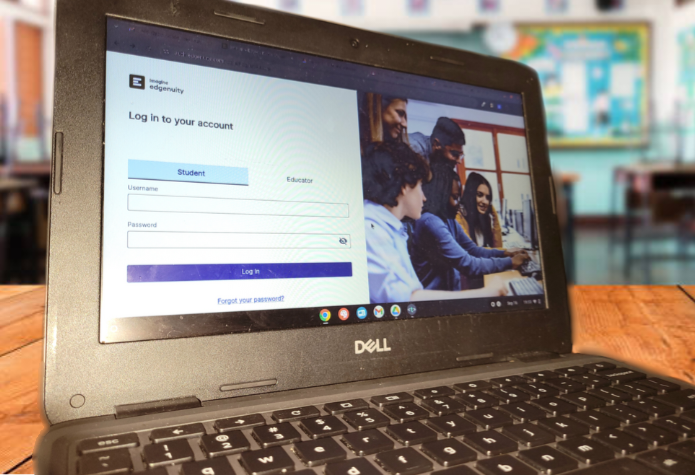Freedom’s use of cyber schooling dates back to the early 2010s, when Edgenuity (formerly “e2020”) was introduced to the curriculum. Since the installation of a cyber program, the high school has shifted gears in terms of who provided the curriculums. Despite adopting Apex in 2021, Freedom returned to Edgenuity this school year because of the rigorous courses it provides for students.
At the beginning of the 2011 school year, Freedom adopted a cyber schooling option to provide students with an alternative way to acquire education. According to former superintendent Dr. Jeffrey Fuller, “the reason that individual school districts are developing their own cyber programs is to keep them from having to pay into the charter schools,” per a 2016 article. In other words, the district was losing funding due to the number of students in the district area attending cyber classes through other schools. By appealing to the cyber student demographic, the school aimed to keep money in-house.
“We would all love for students to be in the building, we believe it is the best way for them to learn. There are different circumstances where students may need to use cyber programs,” Assistant Principal Justin Turpin said. Turpin also serves as the cyber coordinator, replacing John Rosa after his retirement.
In the Edgenuity platform, the school has the ability to customize the curriculum to provide the most classroom-like atmosphere. Although Edgenuity is a national online learning resource, Seneca Valley has an agreement with the company that allows them to manage 60 school districts within the state of Pennsylvania. Freedom was one of the schools that utilized Seneca Valley’s curriculum through cyber schooling.
Freedom shifted to Apex Learning going into the 2021-2022 school year, which was the first year students returned to classrooms full-time after the coronavirus pandemic. Similar to Edgenuity, Apex Learning offered premade courses for students to take online. Freedom teachers moderated courses that aligned with their certifications. For instance, Ms. Debrah Evans, chemistry teacher, moderated all science classes, excluding biology, while Ms. Ruthanne Gudzan, Spanish teacher, moderated all Spanish classes.
Unlike Edgenuity, Apex’s lessons were primarily readings followed by a series of multiple choice questions. The program did not keep clear track of students’ progress, and it self-graded assignments. Due to the self-grading feature, some teachers felt as though they were unable to identify where students were in terms of understanding the material. Likewise, some students did not believe that they were comprehending new information from Apex’s material.
As of the 2024 school year, Freedom returned to its Edgenuity roots. The program has more interactive lessons for students, including videos and open-ended questions. The lessons are automatically spaced based upon how many assignments need to be completed by the end of the grading period. Additionally, Edgenuity does not have the same self-grading system as Apex Learning; some teachers feel they can pinpoint how students are handling their classes through this change.
Since its introduction in 2011, Freedom’s approach to cyber schooling has evolved in an effort to provide flexible yet rigorous learning opportunities for students. By reinstating Edgenuity, the district remains focused on offering an educational opportunity that meets the needs of diverse student demographics.
“We are hoping that the cyber program is more adequate,” Turpin said. “If you are cyber, [we] want the same type of progress, same type of discipline, same amount of work as if you were in person.”



